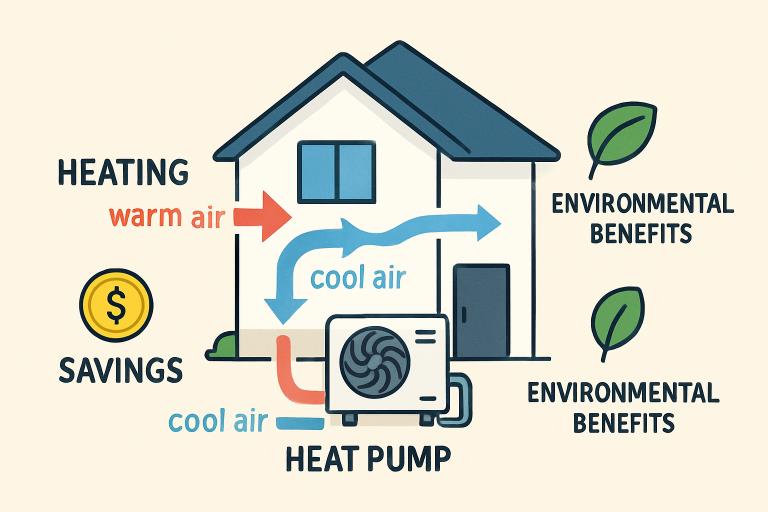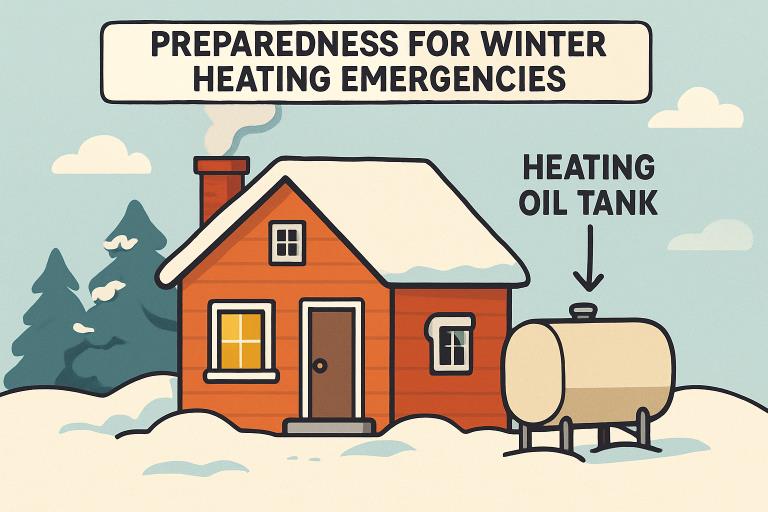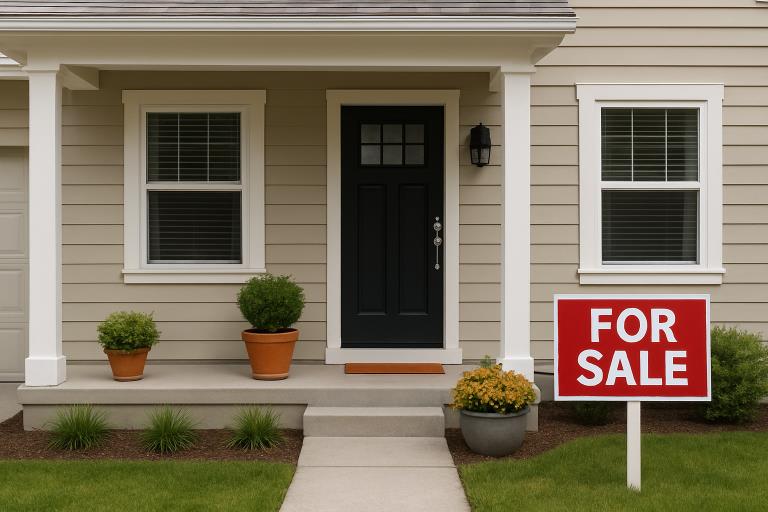Now Reading: Energy-Efficient Comfort: Why More Homeowners Are Switching to Heat Pumps
-
01
Energy-Efficient Comfort: Why More Homeowners Are Switching to Heat Pumps
Energy-Efficient Comfort: Why More Homeowners Are Switching to Heat Pumps

Key Takeaways
- Heat pumps offer significant energy savings and environmental benefits, making them increasingly popular among homeowners.
- Modern heat pumps provide efficient heating and cooling, even in colder climates, while reducing monthly energy costs.
- Government incentives and growing consumer satisfaction are accelerating the adoption of this sustainable technology.
- Professional guidance ensures homeowners get the right system for their region and home configuration.
Introduction
As energy prices continue to rise and the effects of climate change become more pronounced, many homeowners are searching for more sustainable and efficient ways to heat and cool their homes. Heat pumps have quickly emerged as a leading solution, delivering year-round comfort and major reductions in energy usage. For those ready to upgrade their home’s system, working with a trusted local provider—like Los Angeles home heat pump installation experts—can help ensure a smooth transition to this innovative technology.
Switching to a heat pump not only allows homeowners to minimize their carbon footprint but also unlocks significant savings on utility bills over time. Heat pumps can significantly reduce reliance on gas and oil, delivering comfortable indoor temperatures throughout every season. More people are discovering the advantages of heat pump systems, making them one of the fastest-growing choices for home climate control.
Understanding Heat Pumps
Unlike traditional furnaces and air conditioners that generate heat or cold air, heat pumps work by transferring existing heat from one location to another. During winter, they extract warmth from outside air—even when it feels cold—and bring it indoors. In summer, they reverse the process, drawing heat from inside the home and releasing it outdoors. This dual functionality means one system provides both heating and cooling, enhancing versatility and convenience.
Types of Heat Pumps
- Air-source heat pumps:The most common type, these systems pull heat from the air outside and move it indoors.
- Ground-source (geothermal) heat pumps:These use the relatively constant temperature below the earth’s surface to heat or cool the home.
- Ductless mini-split heat pumps AreIdeal for additions or specific rooms, as they don’t require ductwork and offer flexible installation options.
Efficiency and Cost Savings
One of the strongest appeals of heat pumps is their efficiency. According to the U.S. Department of Energy, heat pumps can reduce home energy use by 31% to 47% compared to conventional systems. Optimizing a home with additional weatherization measures—such as improved insulation and air-sealing—can boost those savings even further, ranging between 41% to 52% in total energy reductions.
These efficiency gains translate directly into lower monthly bills. Homeowners report hundreds of dollars in annual savings, especially as electricity grids incorporate cleaner, renewable sources and average gas prices increase. When considering installation costs, many heat pump owners find that initial investments are offset over time by continual utility bill reductions.
Environmental Benefits
By drawing energy from the air or ground and relying on electricity, heat pumps use far less fossil fuel than traditional oil or gas-powered systems. According to the National Renewable Energy Laboratory, widespread adoption of heat pumps in residential settings could slash greenhouse gas emissions by 36% to 64%, even when accounting for emissions from new electricity production.
This substantial reduction in carbon footprint is particularly valuable for local governments and residents committed to combating climate change. Many communities have begun encouraging, or even mandating, the transition away from gas heating to reduce local air pollution and greenhouse gas emissions.
Government Incentives and Support
Local, state, and federal governments continue to introduce new financial incentives to encourage homeowners to install energy-efficient heat pumps. The Inflation Reduction Act of 2022 unlocks valuable tax credits and rebates for eligible installations of qualifying systems, lowering the upfront barrier for many families. Some city utility providers, including those in California, offer substantial rebates and even bill credits—such as a $1,200 bonus in San Francisco—for upgrades to high-efficiency heat pump water heaters.
Growing Popularity and Consumer Satisfaction
Market data shows a rapidly rising adoption rate for residential heat pumps. In 2024, sales of heat pumps surpassed gas furnace sales by 27%, a clear sign of changing homeowner preferences. Users report high levels of satisfaction with these systems. A recent survey highlighted that 88% of heat pump owners believe their system is more energy-efficient than their previous solutions, and nine in ten would recommend heat pumps to friends or family members.
Considerations for Homeowners
Though heat pumps are a great fit for many, it’s important to account for a few key variables before installation. Climate matters: newer cold-climate heat pump models work efficiently even when outdoor temperatures dip below freezing. Home insulation and existing heating/cooling systems will also impact the performance and viability of a heat pump system. Professional assessments can help determine whether ancillary improvements—such as air sealing or adding ductwork—might be beneficial before proceeding.
Finding a Qualified Installer
Working with an experienced, credentialed technician ensures proper sizing, selection, and installation—maximizing both efficiency and system longevity.
Conclusion
With rising demand for greener, cost-effective home comfort solutions, heat pumps represent an ideal choice for many homeowners. They deliver significant savings, reduce carbon footprints, and improve year-round living comfort, making them a cornerstone of the modern home energy transition. To make the switch seamless and get the most from your investment, consult a provider specializing in home heat pump installation for expert advice tailored to your unique needs.





















